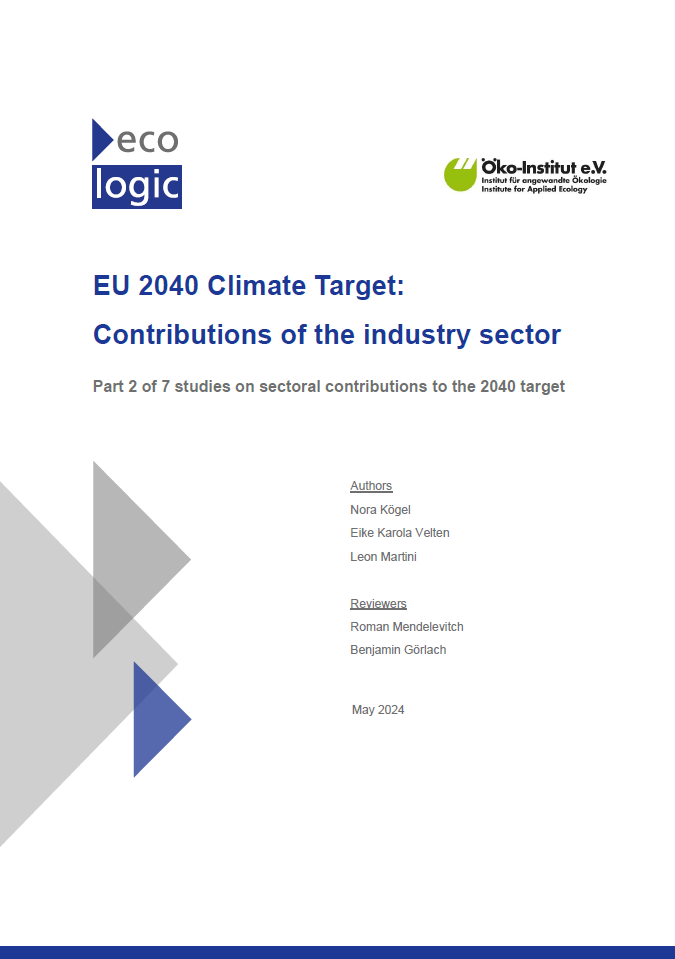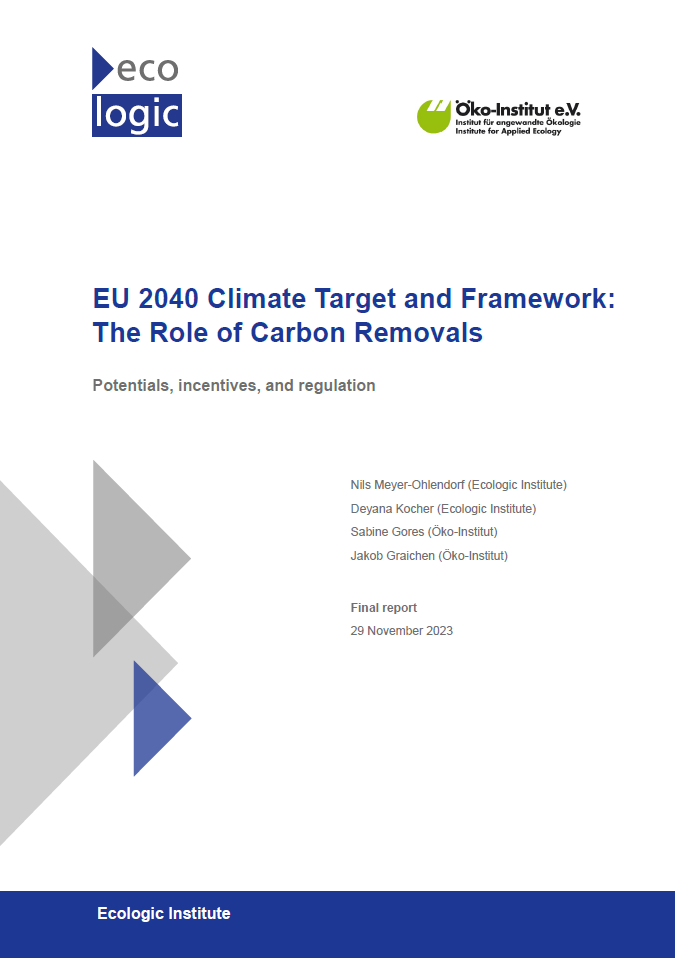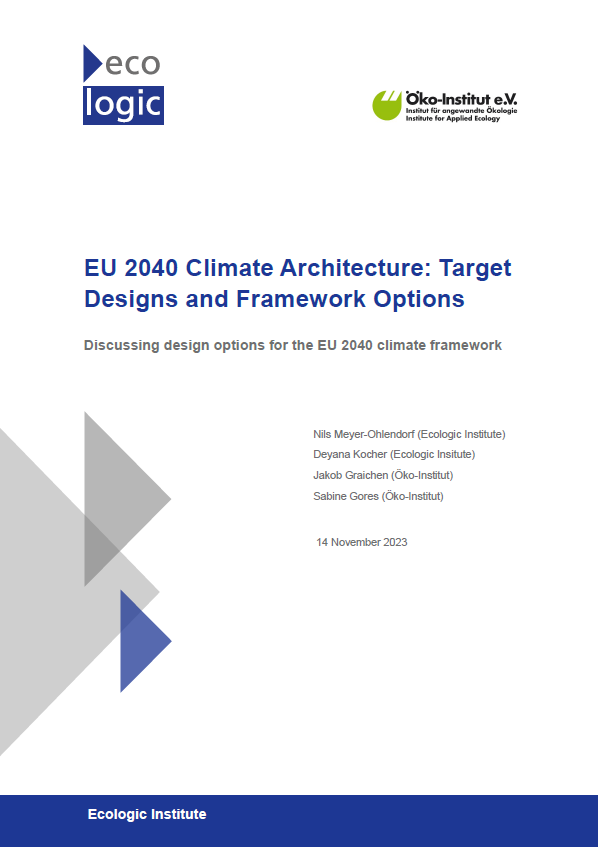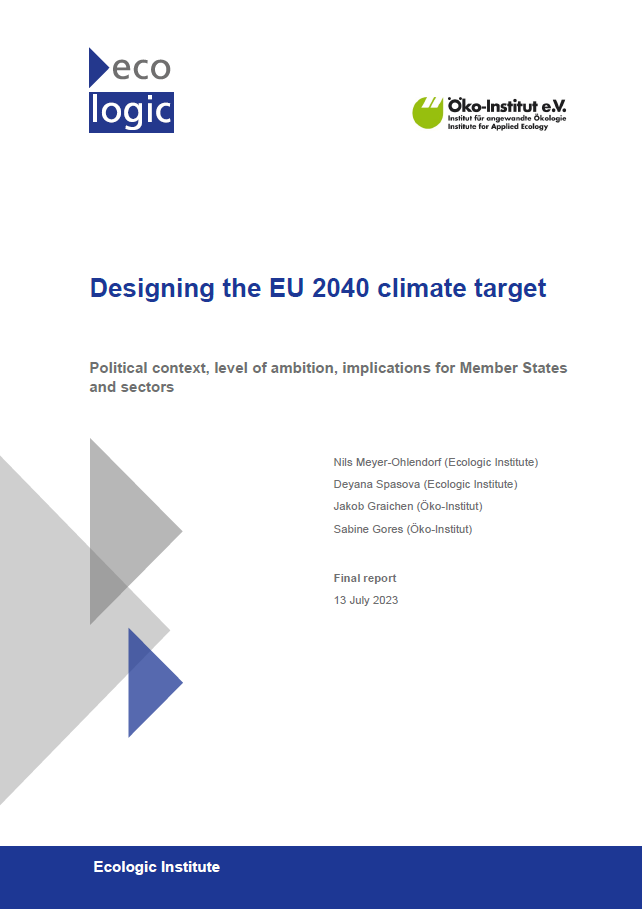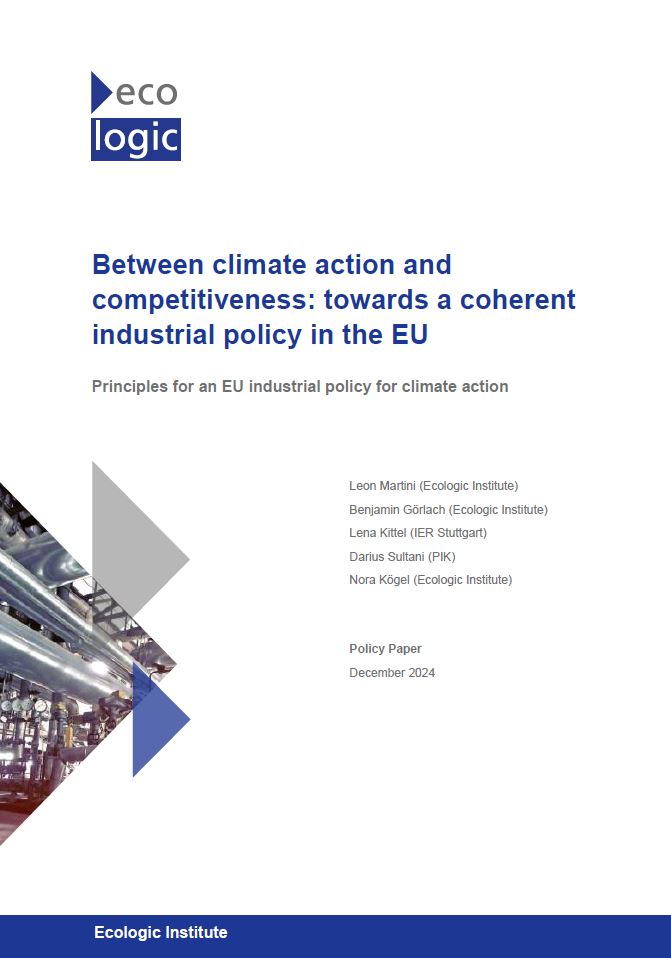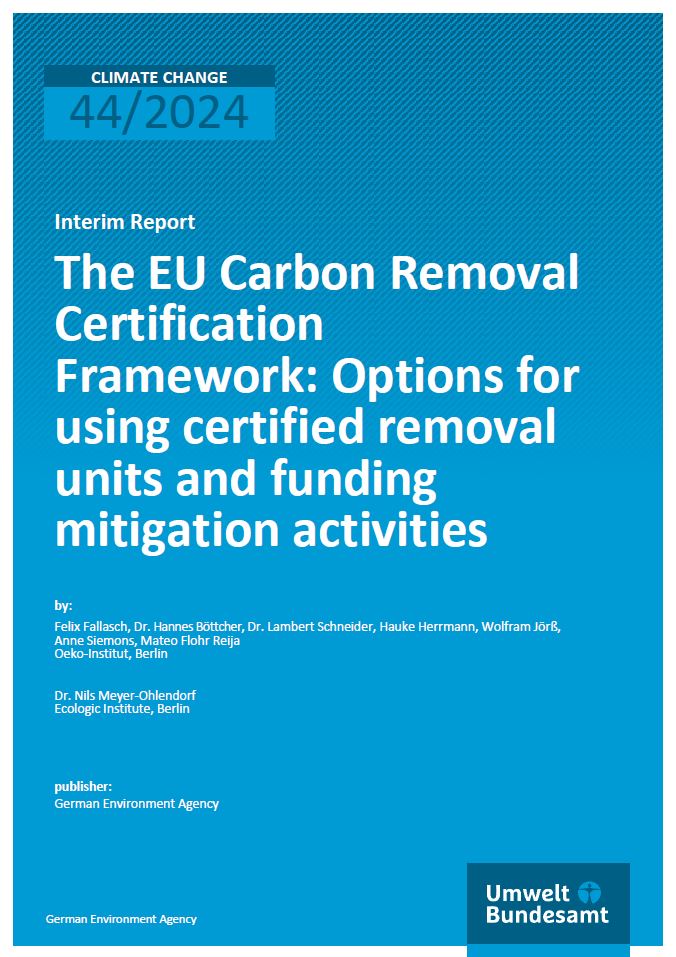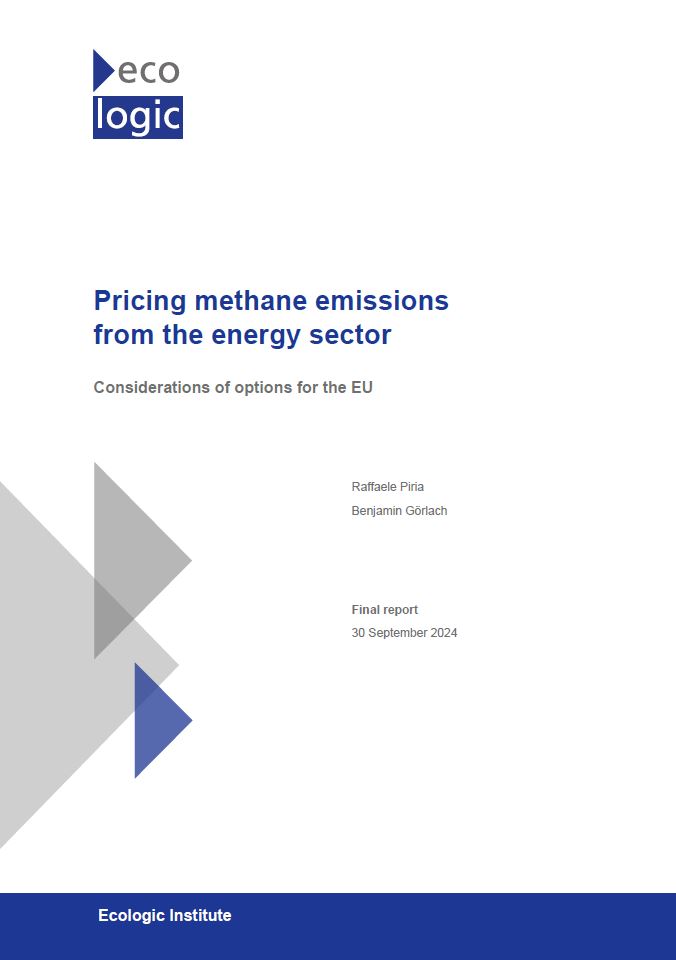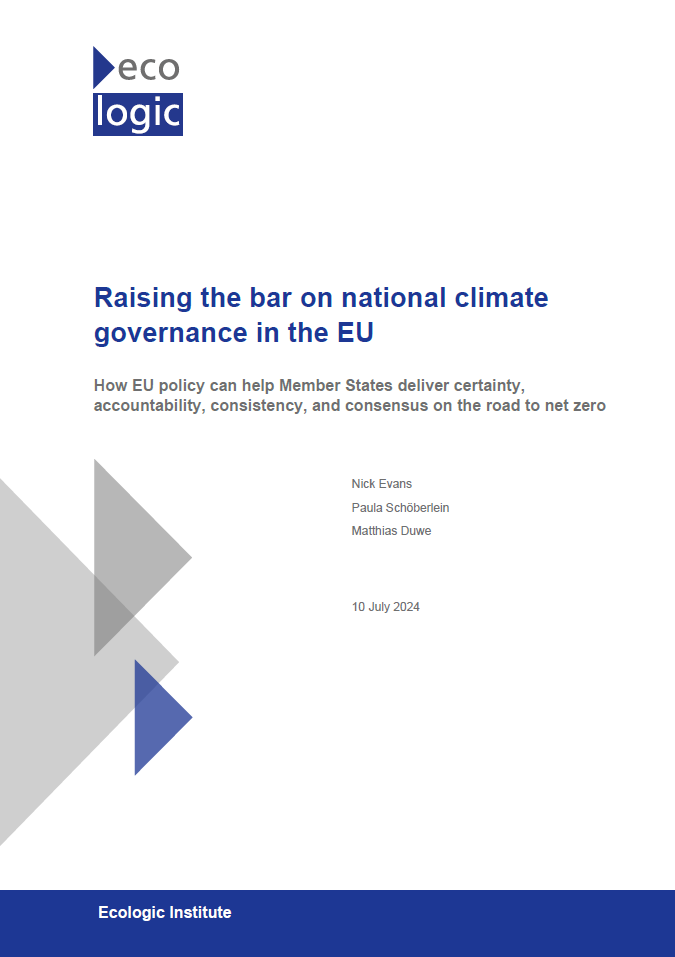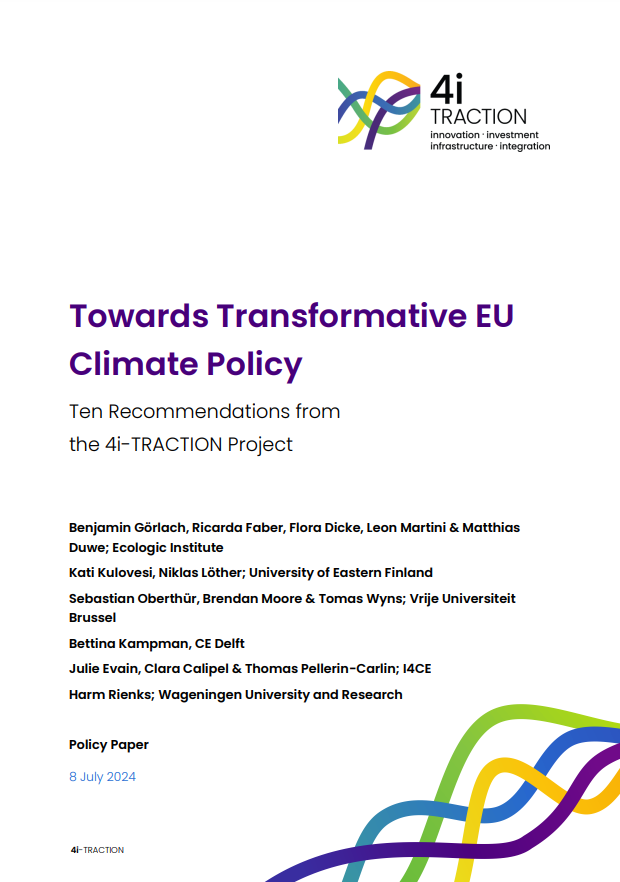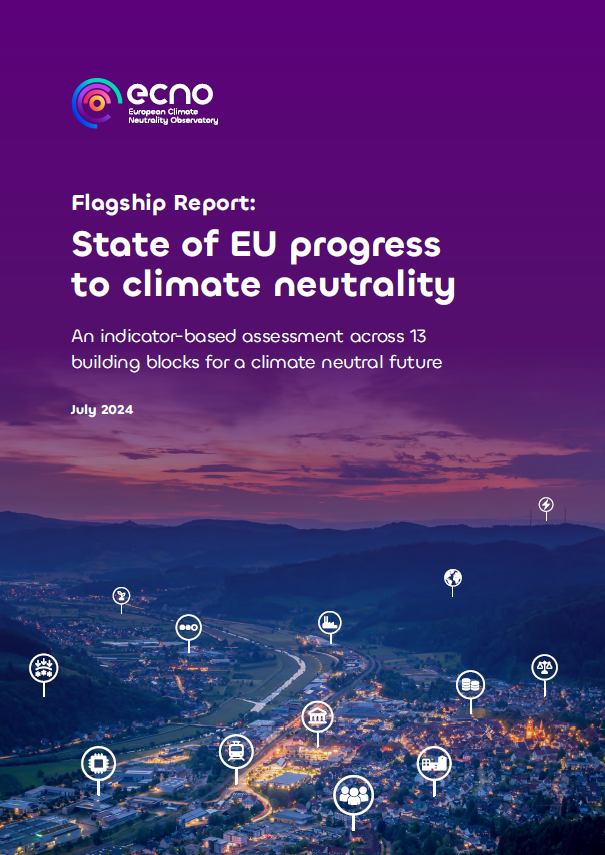The European Climate Law requires the EU to adopt a climate target for 2040. The European Commission recommends an EU climate target for 2040 of 90% reduction in net GHG emissions by 2040. To achieve emission reductions on this scale, the EU must meet its 2030 climate target and scale up its current reduction efforts significantly. In 2023, greenhouse gas emissions in the EU fell by 8%. These reductions were more than five times the average rate since 2005 and surpasses the annual rate required to meet the 2030 climate targets.
A new research report by the Ecologic Institute and Oeko-Institut discusses the implementation of the EU's new 2040 climate target. It identifies building blocks and measures particularly relevant for cutting the EU's emissions by net 90% in 2040. This report is available for download.
- Language
-
English
- Authorship
-
Sabine Gores (Oeko-Institut)Jakob Graichen (Oeko-Institut)
- Funding
-
Federal Ministry for Economic Affairs and Climate Action (BMWK), Germany - Published by
-
Ecologic Institute, Germany Oeko-Institut (Öko-Institut e.V.), Germany - Year
- Dimension
- 63 pp.
- Project
- Project ID
- Table of contents
-
Click to show full table of contents
Executive summary
1 Introduction
2 Building blocks for the 2040 target
2.1 Meeting the 2030 target
2.2 Reduced energy consumption
2.3 Availability of green electricity
2.4 Availability of sustainable biomass
2.5 Availability of green hydrogen
2.6 Availability of carbon capture and storage (CCS) and usage (CCU)
2.7 Availability of carbon removals
2.8 Funding and investment
2.9 Demand side measures complementary but indispensable
3 How can sectors contribute?
3.1 Industry
3.1.2 Key building blocks and challenges
3.1.3 Key measures and policies
3.2 Transport
3.2.1 Emission trends in transport and required emission levels in 2040
3.2.2 Key building blocks and challenges
3.2.3 Key measures and policies
3.3 Energy supply
3.3.1 Emission trends in energy generation and required emission levels in 2040
3.3.2 Key building blocks and challenges
3.3.3 Key measures and policies
3.4 Buildings
3.4.2 Key building blocks and challenges
3.4.3 Key measures and policies
3.5 Agriculture
3.5.2 Key building blocks and challenges
3.5.3 Key measures and policies
4 References - Keywords
-
EU 2040 Climate Target, Greenhouse Gas Emissions, Renewable Energy, Carbon Neutrality, Climate Change Mitigation, Green Hydrogen, Carbon Capture and Storage (CCS), Sustainable Biomass, Decarbonization, Energy Efficiency, Circular Economy, Carbon Removals, Sustainable Transport, Low Carbon Industry, Energy Transition, Building Renovations, Emissions Trading System (ETS), Renewable Fuels, European Union, EU, EU Member StatesEuropeImpact Assessment (IA), Emissions Trading System (ETS), Circular Economy Action Plan (CEAP), Linear Reduction Factor (LRF), Carbon Border Adjustment Mechanism (CBAM), Direct Air Carbon Capture and Storage (DACCS), Renewable Energy Directive (RED), Energy Efficiency Directive (EED), Life Variant Modeling, Carbon Contracts for Difference
Martini, Leon, Benjamin Görlach, Lena Kittel, Darius Sultani and Nora Kögel (2024): Between climate action and competitiveness: towards a coherent industrial policy in the EU. Ecologic Institute, Berlin.
Fallasch, Felix et al. 2024: The EU Carbon Removal Certification Framework: Options for using certified removal units and funding mitigation activities. Interim Report. German Environment Agency: Dessau-Roßlau.
Piria ,Raffaele, Benjamin Görlach (2024): Pricing methane emissions from the energy sector: consideration of options, for the EU. Ecologic Institute, Berlin.
Evans, Nick, Paula Schöberlein, Matthias Duwe (2024). Raising the bar on national climate governance in the EU: How EU policy can help Member States deliver certainty, accountability, consensus, and consistency on the road to net zero. Ecologic Institute: Berlin.
Görlach et al. (2024): Towards Transformative EU Climate Policy – Ten Recommendations from the 4i-TRACTION Project. Ecologic Institute, Berlin.
Velten, Eike Karola et al. 2024: Flagship Report: State of EU progress to climate neutrality. An indicator-based assessment across 13 building blocks for a climate neutral future. European Climate Neutrality Observatory (ECNO).
